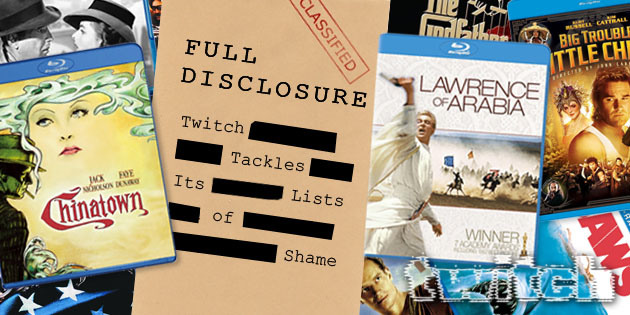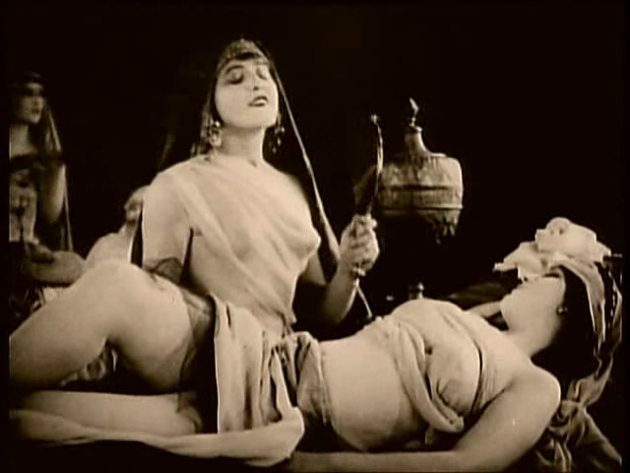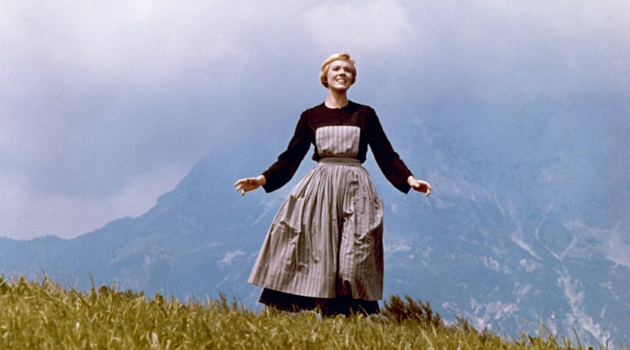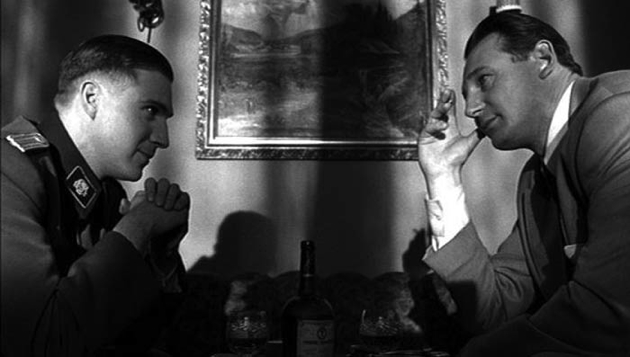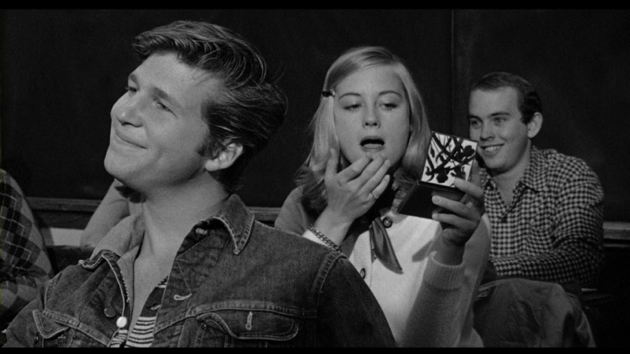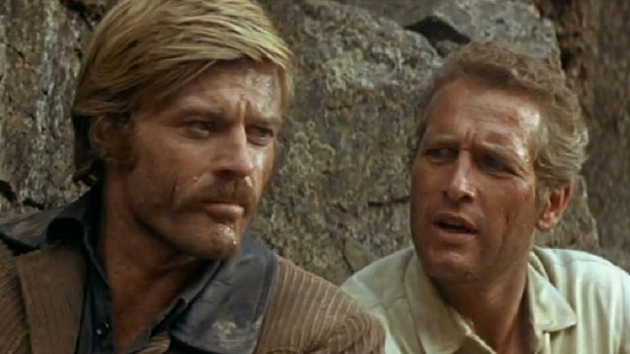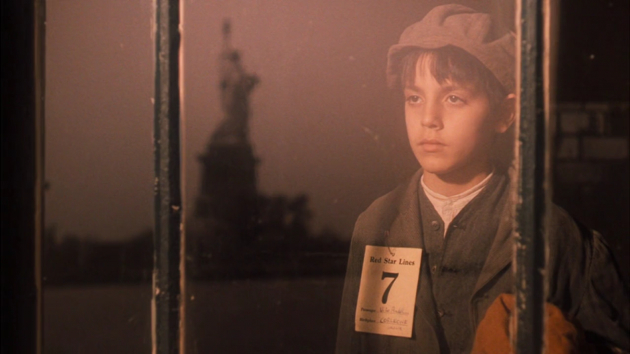Full Disclosure: ScreenAnarchy's Lists Of Shame - November









Intolerance: Love's Struggle Through The Ages (dir. D. W. Griffith, 1916 USA)
Peter Martin, Managing Editor:
I've often joined the chorus of complaints about the length of movies nowadays - almost anything that runs more than two hours comes under immediate suspicion - and I confess that was my go-to excuse for avoiding D.W. Griffith's followup to The Birth of a Nation. Indeed, Intolerance runs more than three hours, but if I'm to be honest, Griffith's endorsement of racism in his previous epic, which spurred the revival of the Ku Klux Klan in America, has long dissuaded me from any further exploration of his oeuvre.
Intolerance features magnificent sets - the recreation of Babylon alone must be overwhelming on a big screen - and stirring action sequences (again, Babylon, especially the first attack by Cyrus and the Persians). As a film that sews together four stories from four different periods of history, it's boldly imaginative and daring, and is frequently charged with emotional electricity, especially in the modern-day segment, which is driven by my favorite kind of scenery-chewing melodrama.
Yet I found myself resistant to its persuasive charms. I can appreciate Griffith's sometimes dazzling technique on a film-student level, and for that reason alone I will inevitably watch more of his work. But this is a case where it is incredibly difficult for me to separate the artist from what he wrought, intentionally or not.
Slacker (dir. Richard Linklater, 1991 USA)
Ryland Aldrich, Festivals Editor:
The second in my "personal favorite auteurs" section of Full Disclosure (after Kubrick's Barry Lyndon } is Richard Linklater's Slacker. I've long heard the stream of consciousness narrative is similar to Waking Life and sure enough, it would be impossible not to compare the two. On this initial watch it would seem the pearls of wisdom throughout are more oblique than those in Waking Life. But as interesting as the roto-scoped animation style in Waking Life is, the most enjoyable part of watching Slacker for the first time is getting a glimpse of Austin circa nearly a quarter-century ago. Add that to the awesome time capsule of early 1990s style and it adds up to a rather enjoyable experience - even if it is pretty obvious that it might take a few more viewings to really get a handle on the "mind of Linklater" that this film promises.
The Fury (dir. Brian De Palma, 1978 USA)
James Marsh, Asian Editor:
After the phenomenal success of Carrie, Brian De Palma clearly felt there was more cinematic mileage to be gleaned from telekinesis, and in The Fury he ups the ante from a small town to a trans-global conspiracy. In fact, De Palma's film is really two different stories running concurrently that only intersect very occasionally, and as it transpires, fairly inconsequentially.
On the one hand there's Kirk Douglas' former government agent, on the trail of his telekinetic son after a bombastic attempt on his life in Israel. Then there's Amy Irving, who has graduated from guilt-ridden high schooler in Carrie to wrestle with her own psychic powers at a special school for gifted youngsters - overseen by John Cassavetes and the same shady folks responsible for abducting Douglas' son.
While considered something of a disappointment on initial release, The Fury proves incredibly rewarding on a number of levels. There's a bombastic score from a fresh-off-Star Wars John Williams and brilliant make-up & effects work complementing a string of impressive set pieces that have proved a trademark of De Palma's style. Add to this a parade of strong performances from a great cast that also includes Charles Durning, Carrie Snodgress, Fiona Lewis and Dennis Franz.
The Fury confidently switches from supernatural horror to political espionage thriller to full on actioner thanks to assured direction from a filmmaker swiftly reaching the peak of his talents. While I had always put off watching The Fury after numerous reports that it was dull, slow or otherwise inferior to many of the director's other films, on finally seeing the film, I can attest that it more than deserves inclusion alongside the very best of De Palma's work.
The Sound of Music (dir. Robert Wise, 1965 USA)
Winner of 5 Academy Awards including Best Picture, Best Director and Best Adapted Score, Winner of 2 Golden Globes, including Best Picture (Musical/Comedy) and Best Actress (Musical/Comedy)
Ard Vijn, Contributing Wiriter:
We're nearing the end of the year and this whole list-of-shame thing, and I have noticed something remarkable. Out of my list, to my surprise it is the Hollywood blockbusters I have experienced the most difficulties watching. These have often dated far beyond their merits, and while I find plenty of nuggets of enjoyment in most of the other films, the gloriously Technicolor crowd-pleasers have been a slog to get through. Never has doing research for ScreenAnarchy seemed so much like work, as when I was watching Gone With The Wind or, last night, The Sound Of Music.
I am actually old enough to remember The Sound Of Music being in the cinemas during its many re-runs, to the point that it played in the same venue at the same time as when I saw The Empire Strikes Back. This very fact has made the film legendary in my mind. So many people I know love it, hate it, have an opinion of it. When James mentioned his idea of a "List of Shame" this title was the first on it for me. And now I've finally seen it myself, and cringed.
Oh, sure there is plenty to like here. I happen to know the area around Salzburg pretty well, so the stellar aerial opening shots were delightful. Throughout the whole film the visual compositions are immaculate. The only problem with that is, that for its entire running time of three hours, EVERYTHING is delightful and immaculate. Julie Andrews and Christopher Plummer are likable enough characters, quirks and all, and the children only half as annoying as might be expected. But three hours of the sweetest moments of Disney films combined is quite a cake to get through, and after 90 minutes of sugar I had already had my fill.
Schindler's List (dir. Steven Spielberg, 1993 USA)
Winner of 7 Academy Awards, including Best Picture, Best Director and Best Editing, Winner of 6 BAFTAs including Best Picture, Best Supporting Actor and The David Lean Award for Direction
Eric Ortiz García, Contributing Writer:
Yet another Steven Spielberg classic I am watching for the very first time, Schindler’s List was synonymous in my mind with a strong criticism Stanley Kubrick made of the way Spielberg approached the Holocaust: “Schindler’s List is about success, the Holocaust was about failure.” Perhaps because two of my heroes, Kubrick and Terry Gilliam (who later supported the criticism), acted as Spielberg detractors was the reason I avoided this black-and-white (with some parts in color) epic for many years, but experiencing the film by myself was far from a happy time.
It actually opened my eyes towards this amazing real-life story of Oskar Schindler, a Nazi Party member who sees war as the opportunity to finally achieve a successful business and, eventually, becomes a very human character rather than a greedy and unconscious businessman. Liam Neeson as Schindler is pure class and, little by little, Spielberg introduces a really unique duel between protagonists: there’s the clever Schindler on one hand and an insane Nazi soldier on the other, played by Ralph Fiennes. The way Schindler puts the Nazi out of his comfort zone, by helping Jews or giving him lessons about what power is really about, makes for some amazing acting scenes.
I don’t think Schindler’s List ignores the reality of the Holocaust, and plenty of bits are simply brutal or genuinely tense. And, ultimately, Schindler himself seems aware that what he did was just an oasis in the immense desert. In short, Spielberg’s film, which just turned 20 this year, presents an unbelievable story with a view to war as a profitable thing and a set of great characters. Until its final homage to Schindler, when the runtime marks more than three hours, it’s always extremely interesting and, being an epic, that indeed says a lot.
The Last Picture Show (dir. Peter Bogdanovich, 1971 USA)
Winner of 2 Academy Awards, including Best Supporting Actor and Best Supporting Actress, Winner of 3 BAFTAs including Best Screenplay and the Golden Globe for Best Supporting Actor
James Dennis, Contributing Writer:
As a key proponent of New Hollywood, albeit not one of the most commercially successful, I've always felt Peter Bogdanovich should have featured more heavily in my viewing. By which I mean, he hasn't featured at all. As perhaps the director's most famous (and celebrated) film, The Last Picture Show seemed as good a place to start as any.
The bottom line is, despite some admirable performances, this character study set in 1950s Texas didn't really hit home for me. By their very nature, coming-of-age movies often portray characters making some poor, naive choices, which are of course to be expected of horny, bored teenagers. Yet the high schoolers of this small town seemed to me just a little too idiotic. I wanted to scream at the lot of them. I'm sure things were 'different back then' and it was 'another time' and all, but I found my empathy quickly drying up. It doesn't take decades of emotional development to figure out that bedding your best mate's ex and your PT teacher's wife is going to cause a stir. It's not so much the naïve choices that bugged me, but the non-plussed reactions to them, mostly from Timothy Bottom's Sonny Crawford. So too, I found his relationship with the “simple” kid facile, and the climactic accident (where would New Hollywood be without a tragic death to top things off) served little narrative purpose other than to elicit a cheap tear.
This said, I still enjoyed the movie. Cybill Shepherd's career-making turn is fantastic. Fickle, beautiful, immature, selfish, alluring – she's the ultimate bitchy high school queen. Ellen Burstyn and Ben Johnson also stand outs in the supporting cast.
Much of the fascination for me is in the film's position in Hollywood's evolution, watching a young Jeff Bridges or Randy Quaid develop, and I can see why it garnered such plaudits. I just felt little affection for it.
Butch Cassidy and the Sundance Kid (dir. George Roy Hill, 1979 USA)
Winner of 4 Academy Awards, including Best Adapted Screenplay, Best Score and Best Cinematography
Niels Matthijs, Contributing Writer:
Even though so far my quest for a good western hasn't been very successful, one cannot give up hope so easily. So here I am, facing my November Full Disclosure assignment, giving it another try. This month I watched Butch Cassidy and the Sundance Kid, George Roy Hill's slightly unique take on the western genre. While this latest attempt wasn't an overpowering success either, I did at least find some bits to like.
The introduction for example, shot with a very atmospheric sepia filter. When the filter finally fades, I was painfully reminded of how ugly westerns look to me, but that intro was definitely stylish. There are some other interesting scenes, like the picture collage in the middle, or the scene shot from behind a wooden fence (probably influenced by The Cranes Are Flying), sadly these remain stand-alone moments.
The chase (if you can call it that) halfway through is too repetitive, a boring succession of landscapes, whining characters and the sound of hooves. The same goes for the heists once they arrive in Bolivia. Newman and Redford make for a pretty funny duo, but their chemistry isn't quite enough to carry an entire film. Once the gang hits Bolivia, I started feeling fed up with the plot as there was very little left to hold my attention.
Butch Cassidy and the Sundance Kid isn't your regular western. There are a few scenes and stylistic choices setting it apart from the rest, sadly these remain somewhat unconnected moments that break up the monotony of the western setting. Guess I still haven't found that one western that will change my view of the genre.
The Godfather: Part II (dir. Francis Ford Coppola, 1974 USA)
Winner of 6 Academy Awards, including Best Picture, Best Director and Best Supporting Actor, winner of the BAFTA for Best Actor
Shelagh M. Rowan-Legg, Contributing Writer:
I can't say that I enjoyed The Godfather: Part II as much as The Godfather; its duel narrative falters a bit too often, and both Vito's and Michael's stories, though I'm guessing they are meant to mirror each other, never form the cohesive whole that I expected, and neither held my complete interest for the length of the film.
Here's the thing: a part of each of Vito's and Michael's stories is interesting. That is, for the first half of the film, Vito's story holds sway. How a young boy witnesses the cruel murder of his mother and how this sets him on his own path of crime and violence, displayed by a Robert De Niro at almost the peak of his acting prowess. Michael's story starts off slow, as just another cycle of violence, which was far more interesting in the first film.
Then, the second half of The Godfather: Part II switches: once Vito is established, his story becomes more dull. Once Michael starts confronting dissent and betrayal within his family (as well as the portrayal of the Cuban Revolution), it gives Pacino far more room to breathe and explore the now even greater depths of his ever-darkening heart. The scene between him and Diane Keaton, when she tells him about her abortion, is a punch to the gut. Although what amazes me more is that a film more than 30 years old actually talks about abortion, whereas today no Hollywood film dares even mention the word even in its proper context.
So here's the question: Should I watch Part III just for consistency, or it really as bad as rumoured?

Around the Internet
Recent Posts
Leading Voices in Global Cinema
- Peter Martin, Dallas, Texas
- Managing Editor
- Andrew Mack, Toronto, Canada
- Editor, News
- Ard Vijn, Rotterdam, The Netherlands
- Editor, Europe
- Benjamin Umstead, Los Angeles, California
- Editor, U.S.
- J Hurtado, Dallas, Texas
- Editor, U.S.
- James Marsh, Hong Kong, China
- Editor, Asia
- Michele "Izzy" Galgana, New England
- Editor, U.S.
- Ryland Aldrich, Los Angeles, California
- Editor, Festivals
- Shelagh Rowan-Legg
- Editor, Canada


